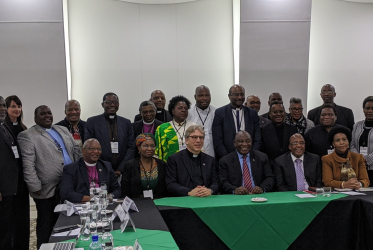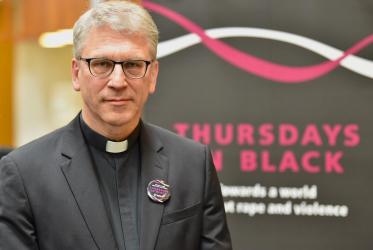Displaying 141 - 160 of 695
15 March 2020
Prayer campaign to end 70-year Korean War gains global momentum
27 February 2020
CCIA meets in Brisbane with focus on Pacific regional priorities
19 February 2020
WCC delegation meets with South African President Ramaphosa
09 December 2019
Peace-building women explore their strength, value
28 November 2019
South Sudan Council of Churches: peace “is a question of the heart”
11 November 2019
WCC general secretary: Iraqi people’s voices must be heard
05 November 2019
WCC expresses hope for work of the Syrian Constitutional Committee
01 November 2019
Churches in southern Africa stand against violence, xenophobia
10 October 2019
African religious leaders express new concerns over South Sudan peace
19 September 2019
WCC organises event on “The Human Rights Situation in the Philippines”
18 September 2019







